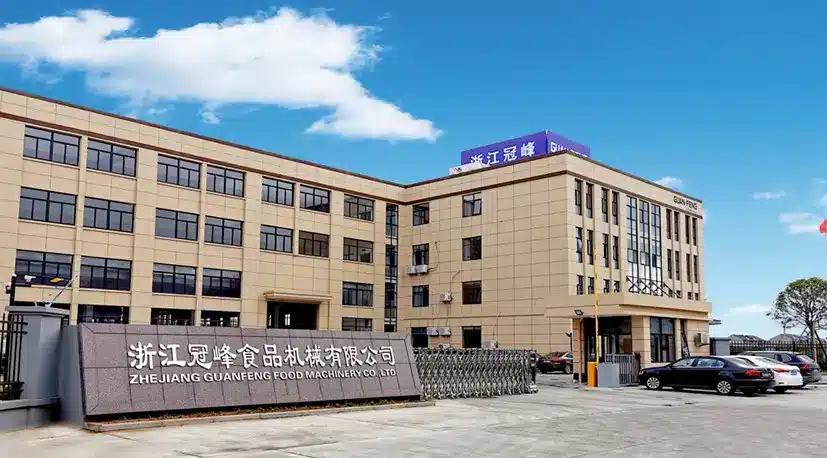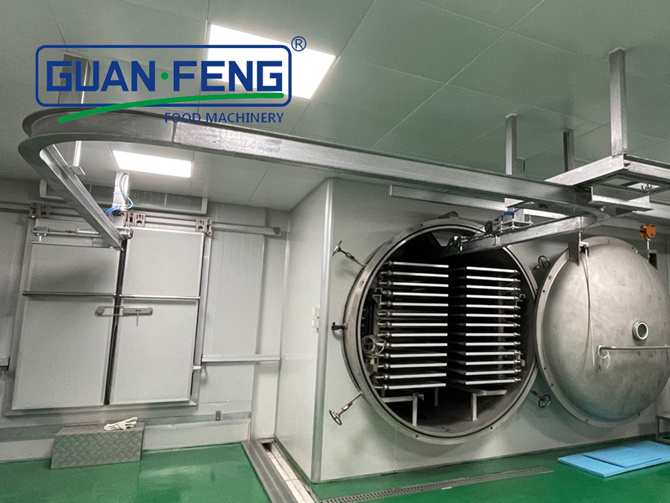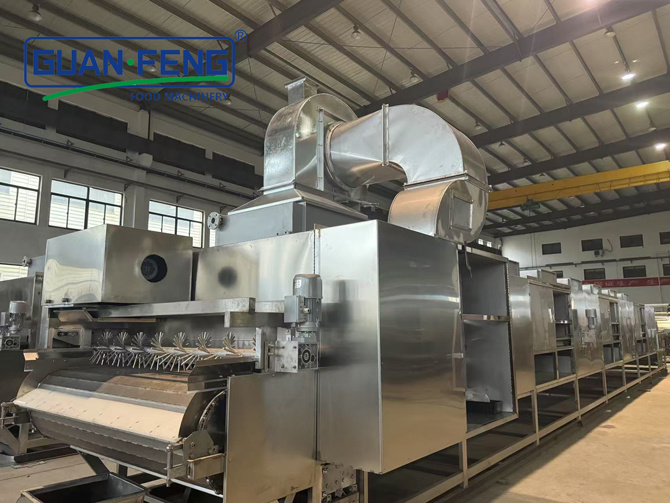BLOG
Focus on hot topics, real-time dynamics
The Advantages of Using a Vacuum Freeze Dryer for Vegetables
Vacuum freeze drying, also known as lyophilization, is a cutting-edge method for preserving vegetables while retaining their essential characteristics. This sophisticated process involves freezing the vegetables and then reducing the surrounding pressure to allow the water in the food to sublimate directly from a solid state to vapor. This unique technique not only helps in maintaining the original structure and flavor of the vegetables but also enhances their longevity, making it a valuable tool in the food preservation and life sciences sectors.
One of the primary advantages of using a vacuum freeze dryer for vegetables is the preservation of nutrients. Traditional drying methods, such as air drying or oven drying, often lead to significant nutrient loss due to high temperatures. In contrast, vacuum freeze drying operates at lower temperatures, which helps to maintain the integrity of vitamins, minerals, and other essential compounds present in the vegetables. This is particularly beneficial for industries focusing on health and nutrition, where nutrient retention is crucial.
Additionally, vacuum freeze-dried vegetables offer a significantly extended shelf life compared to their fresh counterparts. By removing the moisture content, vacuum freeze dryers inhibit microbial growth and enzymatic reactions that typically lead to spoilage. This means that businesses can store and distribute a diverse range of vegetable products without the need for refrigeration, thus enhancing logistical efficiency and reducing waste.
Another notable benefit of vacuum freeze drying is the preservation of the vegetables' color and texture. Unlike conventional drying methods that can often result in a dull appearance and altered texture, vacuum freeze-dried vegetables retain their vibrant colors and original shapes. This quality makes them highly appealing for culinary applications, as they can be easily rehydrated for use in soups, stews, and various dishes, providing an excellent alternative for consumers seeking convenience without sacrificing quality.
Furthermore, the vacuum freeze dryer operates in a controlled environment, which minimizes the risk of contamination compared to other drying techniques. This aspect is particularly important for laboratories and research settings where maintaining the purity of samples is critical.
In conclusion, the use of a vacuum freeze dryer for vegetables presents numerous benefits, including nutrient preservation, extended shelf life, appealing aesthetics, and reduced contamination risk. As the life sciences industry continues to evolve, the demand for high-quality preservation methods will only increase, positioning vacuum freeze drying as a fundamental technology for ensuring the integrity of vegetable products. Embracing this innovative approach can lead to enhanced product offerings and greater customer satisfaction in various food and research applications.
One of the primary advantages of using a vacuum freeze dryer for vegetables is the preservation of nutrients. Traditional drying methods, such as air drying or oven drying, often lead to significant nutrient loss due to high temperatures. In contrast, vacuum freeze drying operates at lower temperatures, which helps to maintain the integrity of vitamins, minerals, and other essential compounds present in the vegetables. This is particularly beneficial for industries focusing on health and nutrition, where nutrient retention is crucial.
Additionally, vacuum freeze-dried vegetables offer a significantly extended shelf life compared to their fresh counterparts. By removing the moisture content, vacuum freeze dryers inhibit microbial growth and enzymatic reactions that typically lead to spoilage. This means that businesses can store and distribute a diverse range of vegetable products without the need for refrigeration, thus enhancing logistical efficiency and reducing waste.
Another notable benefit of vacuum freeze drying is the preservation of the vegetables' color and texture. Unlike conventional drying methods that can often result in a dull appearance and altered texture, vacuum freeze-dried vegetables retain their vibrant colors and original shapes. This quality makes them highly appealing for culinary applications, as they can be easily rehydrated for use in soups, stews, and various dishes, providing an excellent alternative for consumers seeking convenience without sacrificing quality.
Furthermore, the vacuum freeze dryer operates in a controlled environment, which minimizes the risk of contamination compared to other drying techniques. This aspect is particularly important for laboratories and research settings where maintaining the purity of samples is critical.
In conclusion, the use of a vacuum freeze dryer for vegetables presents numerous benefits, including nutrient preservation, extended shelf life, appealing aesthetics, and reduced contamination risk. As the life sciences industry continues to evolve, the demand for high-quality preservation methods will only increase, positioning vacuum freeze drying as a fundamental technology for ensuring the integrity of vegetable products. Embracing this innovative approach can lead to enhanced product offerings and greater customer satisfaction in various food and research applications.
Hot Tags:
PREVIOUS:
Contact Us
E-mail:
sales@syguanfeng.com
Tel:
+86 15088506234
Address:
South Industrial Park of Dongguan, Shangyu District, Shaoxing City,Zhejiang Province,China.
GUANFENG, your customization experts!
GUANFENG FOOD MACHINERY - leading supplier of integrated food processing solutions
Copyright© 2024 ZHEJIANG GUANFENG FOOD MACHINERY CO.,LTD.










